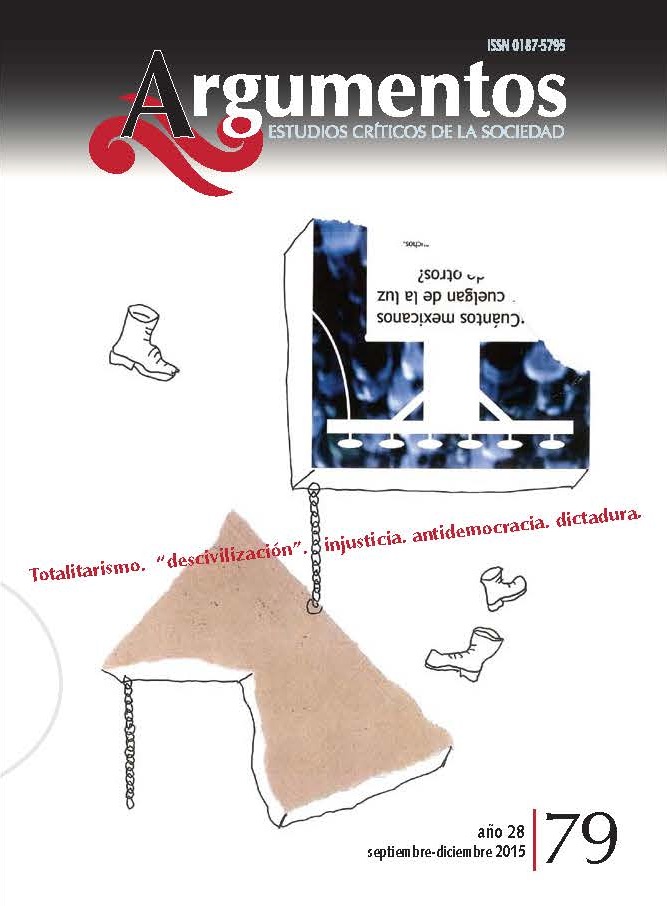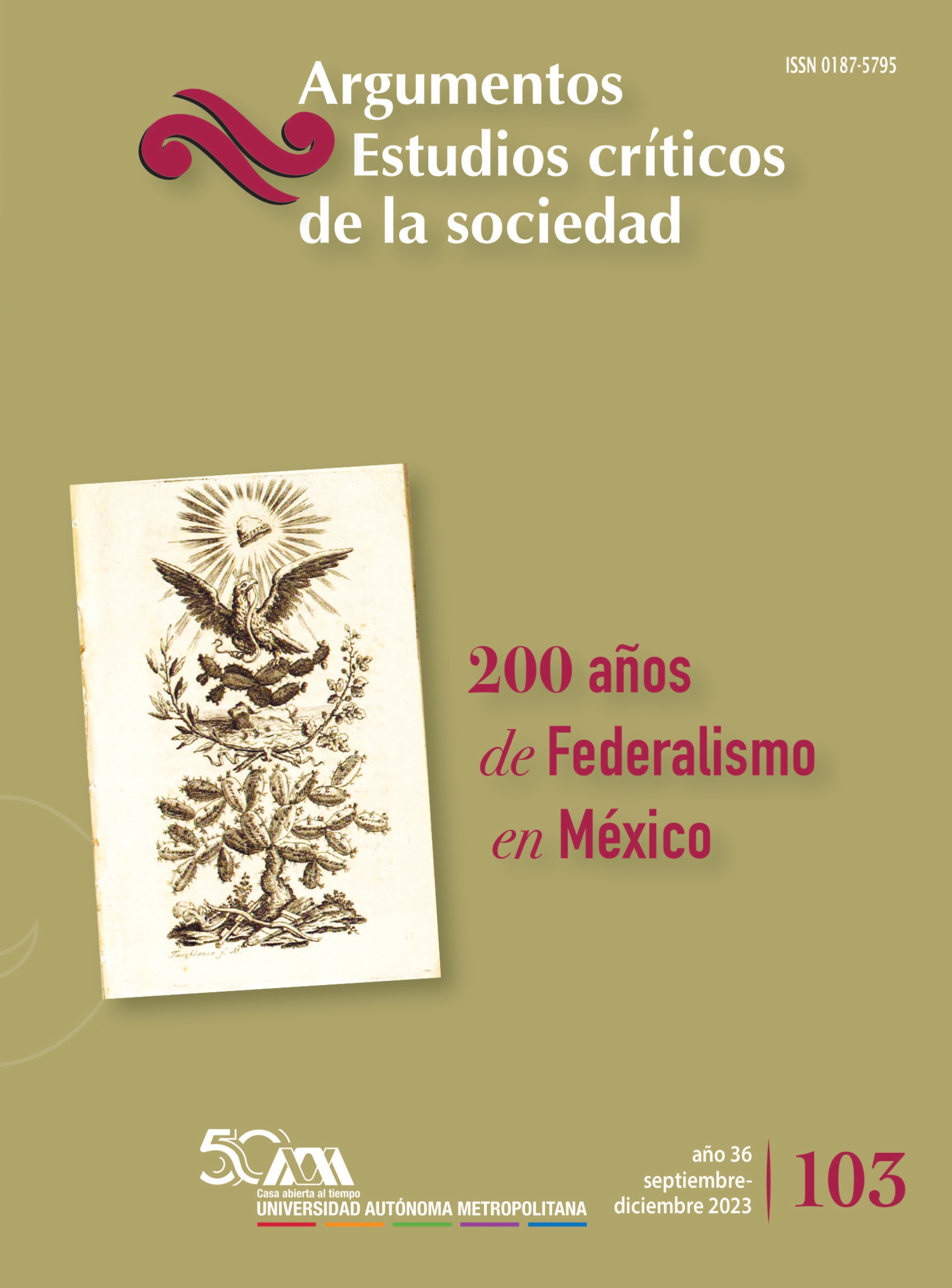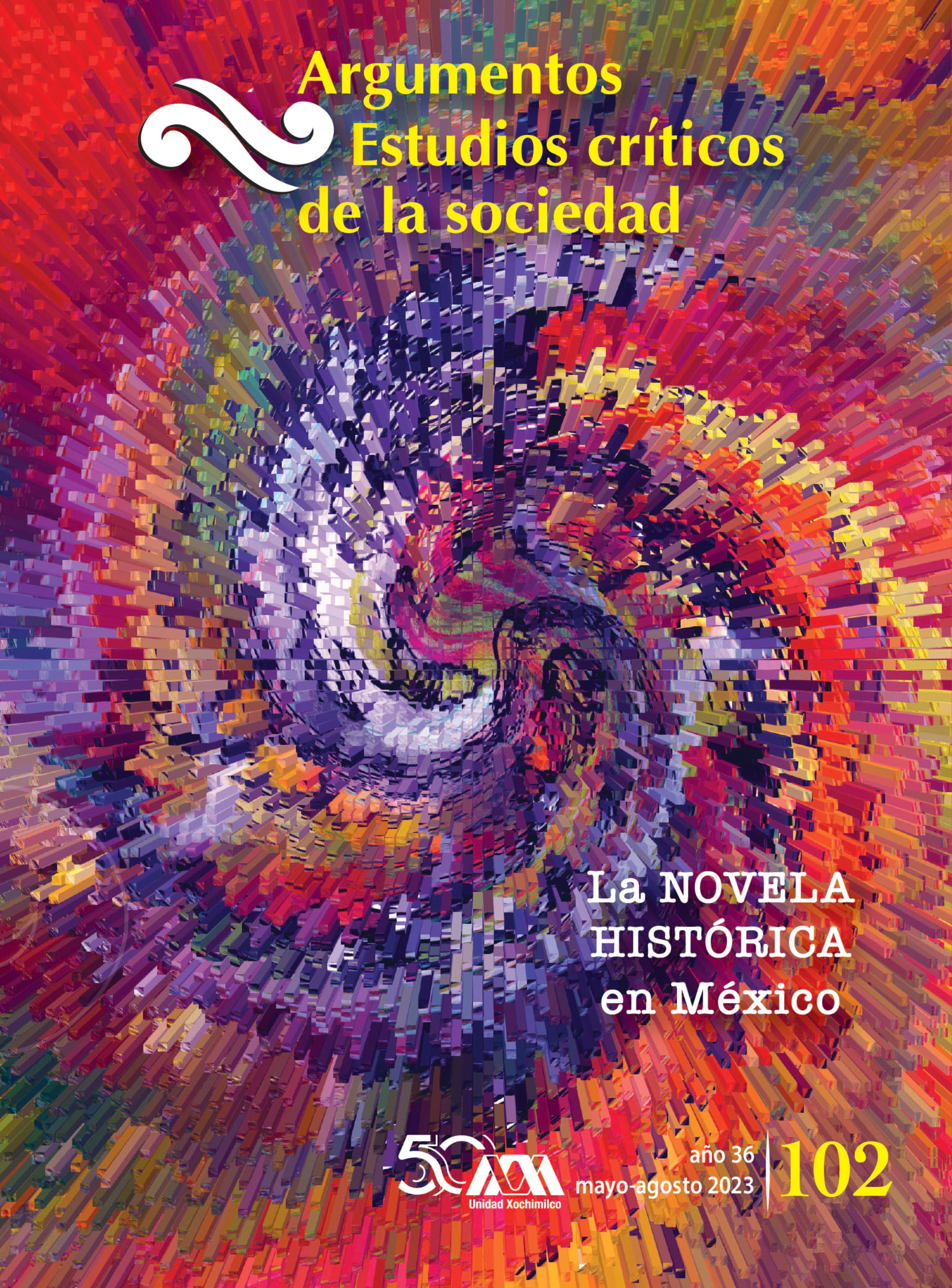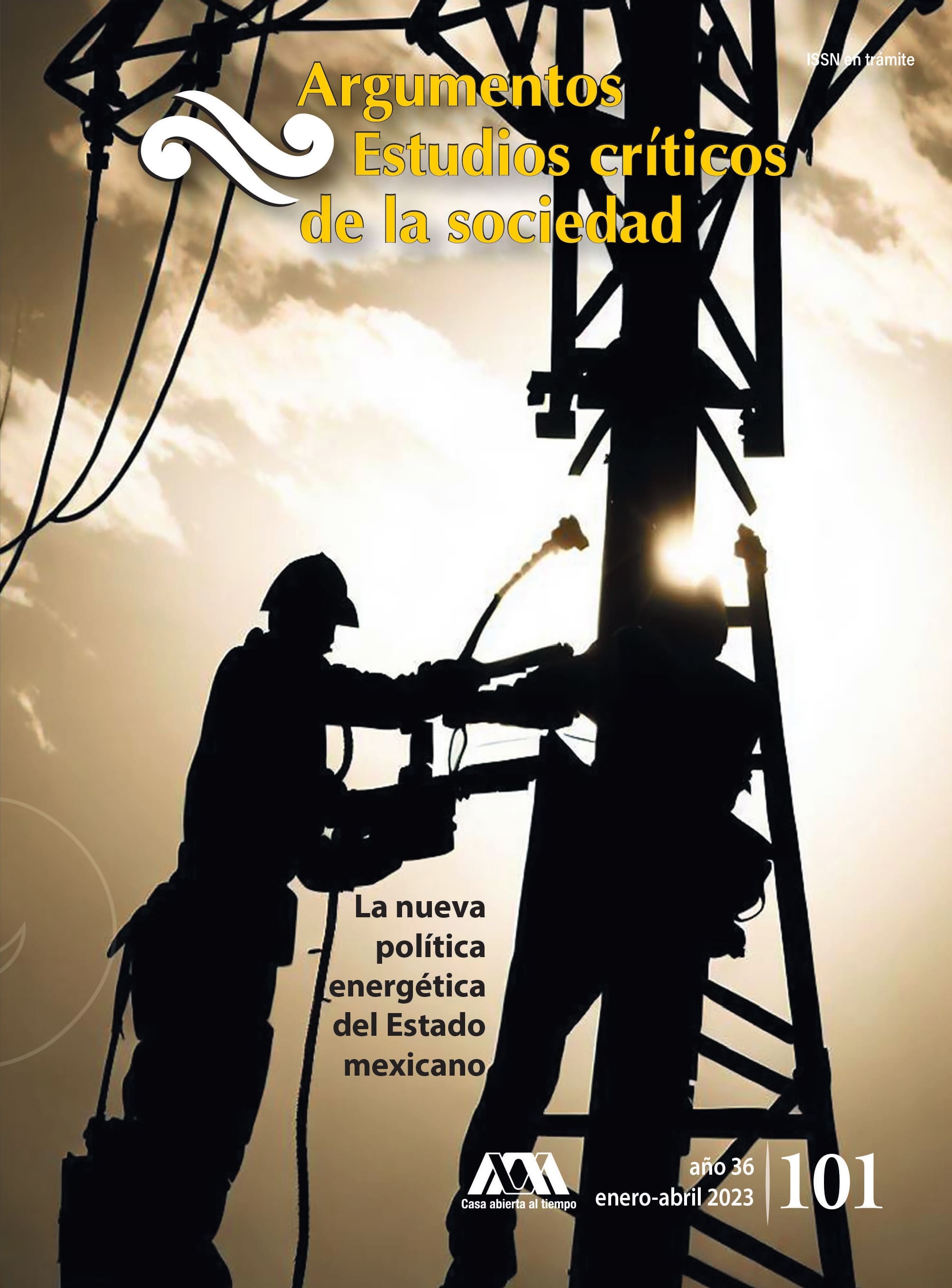El concepto de responsabilidad como clave de lectura de "Los orígenes del totalitarismo"
Keywords:
responsibility, totalitarianism, evasion, action, humanityAbstract
The concept of responsibility centrally transverses Arendt’s thought, which makes it pertinent to assume it as key to the reading of her texts. In the present article this analytical perspective focuses in The Origins of Totalitarianism. Considering that totalitarianism is a regime of total domination that eliminates responsibility, this task makes use of discovery by contrast, that is, a way to recognize the –so to say– “positive” meaning of responsibility, by means of the analysis of every form used by totalitarianism to escape it and abolish it. To show the haul from the evasion to the abolition of responsibility, the theories and the forms of escape from responsibility are presented in the first place. Then, there will be a consideration for two prominent points of the way trodden by totalitarianism to impose a model of man whose center is the abolition of responsibility: a) the rupture with reality and the abolition of the capacity for thought, and b) the principle that “everything is possible” and the suppression of the idea of humanity. Last, some conclusions about the concept of responsibility.
References
PRIMARIA
Arendt, Hannah (1996a), “Prefacio: la brecha entre el pasado y el futuro”, en Entre el pasado y el futuro. Ocho ejercicios sobre la reflexión política, trad. A. Poljak, Barcelona, Península, pp. 9-21.
-- (1996b), “¿Qué es la autoridad?”, en Entre el pasado y el futuro. Ocho ejercicios sobre la reflexión política, trad. A. Poljak, Barcelona, Península, pp. 101-153.
-- (1996c), “¿Qué es la libertad?”, en Entre el pasado y el futuro. Ocho ejercicios sobre la reflexión política, trad. A. Poljak, Barcelona, Península, pp. 155-184.
-- (1996d), “La crisis de la educación”, en Entre el pasado y el futuro. Ocho ejercicios sobre la reflexión política, trad. A. Poljak, Barcelona, Península, pp. 185-208.
-- (1999), Los orígenes del totalitarismo, trad. G. Solana, Madrid, Taurus.
-- (2002), “Una réplica a Eric Voegelin”, trad. A. Serrano de Haro, Claves de razón práctica, núm. 124, julio-agosto, pp. 8-11.
-- (2006), Hannah Arendt. Diario filosófico. 1950-1973, U. Ludz e I. Nordmann (ed.), trad. R. Gabás, Barcelona, Herder.
-- (2007), La condición humana, trad. R. Gil Novales, Buenos Aires, Paidós.
SECUNDARIA
Ávila, Mariela (2010), “Totalitarismo y subjetividad. Aproximaciones para pensar el campo de detención y exterminio”, Revista de la academia, núm. 15, pp. 159-167.
Bernstein, Richard J. (2004), El mal radical. Una indagación filosófica, trad. M. Burello, Buenos Aires, Lilmod.
-- (1997), “Did Hannah Arendt Change Her Mind?: From Radical Evil to the Banality of Evil”, en May, L. y J. Kohn (eds.), Hannah Arendt. Twenty Years Later, Cambridge, The MITPress, pp. 127-146.
-- (2010), “La responsabilidad, el juicio y el mal”, en Fina Birulés (ed.), Hannah Arendt. El legado de una mirada, Madrid, Sequitur, pp. 45-64.
-- (2002), “The origins of Totalitarianism: Not History, but Politics”, Social Research, vol. 69, núm. 2.
Canovan, Margaret (1992), Hannah Arendt. A reinterpretation of her political thought, Nueva York, Cambridge University Press.
-- (2006), “Arendt’s Theory of Totalitarianism: a Reassessment”, en Villa, Dana (ed), The Cambridge Companion to Hannah Arendt, Cambridge, Cambridge University Press, pp. 25-43.
Cruz, Manuel (2007), “Hannah Arendt: pensadora del siglo”, en Arendt, Hannah, La condición humana, trad. R. Gil Novales, Buenos Aires, Paidós.
Di Pego, Anabella (2010), “Modernidad, filosofía y totalitarismo en Hannah Arendt”, Páginas de filosofía, año XI, núm.13, pp. 35-57.
Galetto, Gerardo (2009), Hannah Arendt: sentido común y verdad, Buenos Aires, Biblos.
Heuer, Wolfgang (2010), “AufsätzezumTotalitarismus”, en Wolfgang Heuer, B. Heiter y S. Rosemüller (eds.), Arendt Handbuch. Leben, Werk, Wirkung, Stuttgart, Verlag J.B. Metzler.
Kateb, George (2002), “Ideology and Storytelling”, Social Research, vol. 69, núm. 2, pp. 322-357.
Lefort, Claude (1990), “Hannah Arendt y el totalitarismo”, en La invención democrática, Buenos Aires, Nueva Visión, pp. 81-99.
Staudenmaier, Peter (2012), “Hannah Arendt’s Analysis of Antisemitism in The Origins of Totalitarianism: a Critical Appraisal”, Patterns of Prejudice, vol. 46, núm. 2.
Tsao, R. (2002), “The Three Phases of Arendt’s Theory of Totalitarianism”, Social Research, vol. 69, núm. 2, pp. 579-619.
Villa, Dana R. (2006), “Introduction: the Development of Arendt’s Political Thought”, en Dana Villa (ed.), The Cambridge Companionto Hannah Arendt, Cambridge, Cambridge University Press, pp. 1-22.
Voegelin, Eric (2002), “Acerca de Los orígenes del totalitarismo”, trad. A. Serrano de Haro, Claves de Razón Práctica, núm. 124, julio/agosto, pp. 4-8.
Young-Bruehl, Elisabeth (2004), Hannah Arendt. For love of the world, New Haven, Yale University Press, 2004.








